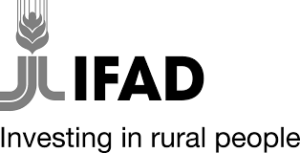Rome, 9 November 2018 – At this week’s Paris Peace Forum, Gilbert F. Houngbo, President of the International Fund for Agricultural Development (IFAD) will ask global leaders to consider the crucial role that increased investment in rural areas of developing countries can play in addressing the root causes of conflicts . The Forum, 11-12 November, brings together more than 60 heads of state and government, as well as civil society leaders, to discuss global governance and concrete actions to building lasting peace.

“Peace and stability are not possible when people are hungry, poor and left behind,” Houngbo said, prior to the Forum. “With hunger on the rise for the third year in a row, it is urgent to increase financing for long-term development that result in the economic and social transformation of rural areas.”
Houngbo highlighted that “Hunger and poverty are global plights that can only be solved through collective and coordinated action, involving government, the private sector, NGOs and multilateral institutions, as well as research centres, academia, and most importantly rural women and men.”
About 80 per cent of the poorest and most food insecure people of the world live in rural areas.
Food security represents a basic requirement for peaceful societies as acknowledged by the UN resolution 2417 adopted last May.
The 2017 and 2018 editions of The State of Food Security and Nutrition in the World (SOFI) – co-authored by IFAD and other partner UN agencies – underscore how food insecurity and competition for dwindling natural resources can become one of the triggers for instability, particularly in contexts marked by fragile institutions and climate-related events.
Droughts, for example, can jeopardize food security which, in turn, increases the risk of violence and conflict. Studies cited in the SOFI indicate that as drought intensifies and lingers, the likelihood of conflict rises significantly. One example is the Sahel, a region Houngbo visited in August. Plagued by hunger, poverty and recurring droughts, the region experiences conflicts between farmers and pastoralists as well as armed groups.
The 2018 edition of the SOFI report released in September reports that there are nearly 821 million people facing starvation and malnutrition in the world today.
By investing in rural areas, IFAD helps improve rural livelihoods, food security and youth employment and in doing so contributes to stability. With a longstanding experience in some of the most remote rural areas in developing and emerging economies, IFAD works closely with governments and local communities and understands the root causes of conflicts. For example, IFAD has significant experience working in fragile situations, implementing projects to help communities manage natural resources peacefully.
At the Fourm, Houngbo will participate in the panel “Gender equality: is time up?” where he will underline the importance of gender equality and explain why it is a pre-condition to end poverty, enable sustainable development and ensure lasting peace.
IFAD-supported projects empower rural women by strengthening their access to land, credit and productive resources, as well as by facilitating behaviour change within households that promote sharing workloads and resources equitably. Half of rural people reached by IFAD’s investments are women.
IFAD has invested in rural people for 40 years, empowering them to reduce poverty, increase food security, improve nutrition and strengthen resilience. Since 1978, we have provided US$20.4 billion in grants and low-interest loans to projects that have reached about 480 million people. IFAD is an international financial institution and a specialized United Nations agency based in Rome – the UN’s food and agriculture hub.
